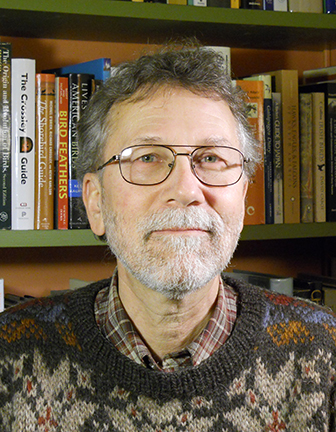This month, the Association for Asian Studies honored Phillip Wagoner, professor of art history, professor of archaeology, with the Ananda Kentish Coomaraswamy Book Prize. Wagoner and his co-author Richard Easton received the award for their book, Power, Memory, Architecture: Contested Sites on India’s Deccan Plateau, 1300-1600, published by Oxford University Press in 2014. The Ananda Kentish Coomaraswamy Book Prize honors a distinguished work of scholarship in South Asian Studies that promises to define or redefine the understanding of whole subject areas. The book's subject matter must deal with South Asia (India, Pakistan, Nepal, Afghanistan, Sri Lanka, Bangladesh). Power, Memory, Architecture is the first comprehensive exploration of history…
On Oct. 5, Phillip Wagoner, professor of art history, professor of archaeology, was named a co-recipient of the American Historical Association's John F. Richards Prize in South Asian History. The John F. Richards Prize recognizes the most distinguished work of scholarship on South Asian history published in English. Eligibility includes books on any period or field of South Asian historical studies and works which integrate South Asian history with broader global issues and movements. Wagoner shares the prize with Richard Eaton of the University of Arizona. Together, they co-authored the book, Power, Memory, Architecture: Contested Sites on India’s Deccan Plateau, 1300–1600,…
Professor Phillip Wagoner is the co-author of Power, Memory, Architecture: Contested Sites on India’s Deccan Plateau, 1300-1600, published by Oxford University Press in March 2014. Wagoner is chair and professor of archaeology, professor of art history. Focusing on India’s Deccan Plateau, this book explores how power and memory combined to produce the region’s built landscape, as seen above all in its monumental architecture. During the turbulent 16th century, fortified frontier strongholds like Kalyana, Warangal, or Raichur were repeatedly contested by primary centers—namely, great capital cities such as Bijapur, Vijayanagara or Golconda. Examining the political histories and material culture of both…
Every year Wesleyan recognizes outstanding teaching with three Binswanger Prizes for Excellence in Teaching awarded at commencement. These prizes, made possible by gifts from the family of the late Frank G. Binswanger Sr., Hon. ’85, underscore Wesleyan’s commitment to its scholar-teachers, who are responsible for the university’s distinctive approach to liberal arts education. Recommendations are solicited from alumni of the last 10 graduating classes, and current juniors, seniors, and graduate students. Recipients are chosen by a selection committee of faculty, emeriti, and members of the Alumni Association Executive Committee. This year, Wesleyan honored the following faculty members for their excellence…
Phillip Wagoner, professor of art history and chair of the archaeology program, spoke on "Power, Memory, Architecture: Contested Sites on India's Deccan Plateau, 1300-1600," at Penn State University Park campus April 5. Wagoner discussed his upcoming book of the same title, which focuses on the cultural history of the Deccan region of South India (1200-1600), primarily in the historical interactions between the region’s established Indic culture and the Persianate culture that arrived in the early 14th century. Since 1987, Wagoner has been associated with the Vijayanagara Research Project, an international team of scholars in different disciplines dedicated to documentation and…


